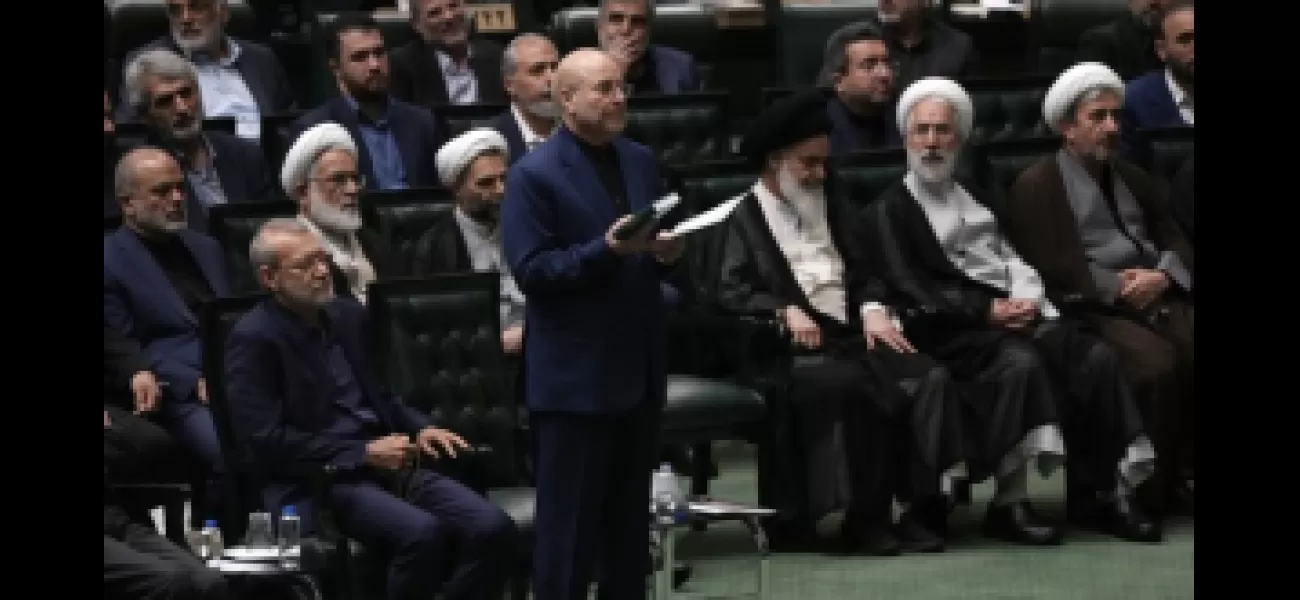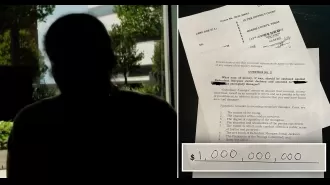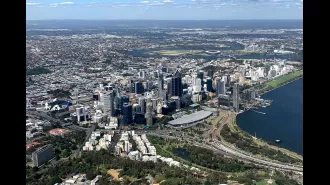Conservative politician Mohammad Bagher Qalibaf remains speaker of Iran's parliament after being re-elected.
Iran's parliament re-elected hard-liner Mohammad Bagher Qalibaf as speaker, maintaining its conservative majority after a tragic helicopter crash.
May 28th 2024.

In a recent parliamentary session in Dubai, Iran's hard-line politician Mohammad Bagher Qalibaf was re-elected as the speaker, solidifying the conservative makeup of the parliament after a tragic helicopter crash claimed the lives of the country's president and foreign minister.
Out of the 287 lawmakers present, 198 voted in favor of Qalibaf retaining the position he first held in 2021. Prior to becoming a speaker, Qalibaf had made several unsuccessful attempts at running for president and had also served as the mayor of Tehran for 12 years. During his tenure, he focused on improving the city's infrastructure by expanding the subway network and promoting the construction of modern high-rise buildings.
However, Qalibaf's reputation is not without controversy. As a former Revolutionary Guard general, he was involved in a violent crackdown on Iranian university students in 1999 and was also accused of ordering the use of live ammunition against protesters in 2003 when he served as the country's police chief.
Qalibaf's main challenger in the parliamentary election was Mojtaba Zonnouri, a hard-line Shiite cleric who had previously led the parliament's national security commission. Another contender, Manouchehr Mottaki, a former foreign minister under hard-line President Mahmoud Ahmadinejad, received only five votes.
After the vote, Qalibaf did not make any immediate statements. It is worth noting that the parliamentary election in March had the lowest turnout since the 1979 Islamic Revolution. According to an Associated Press survey, the majority of the 290-seat body is now controlled by hard-liners.
Qalibaf's background is quite diverse, as he is a trained pilot and had served in the paramilitary Revolutionary Guard during the Iran-Iraq war in the 1980s. After the war, he led the reconstruction efforts as the head of the Guard's construction arm, Khatam al-Anbia. He then went on to become the head of the Guard's air force and played a role in the 1999 student protests in Tehran by co-signing a letter to the reformist President Mohammad Khatami, warning him of potential unilateral actions by the Guard if the demonstrations were not put down.
The protests turned violent, resulting in casualties and arrests. Qalibaf then took up the position of Iran's police chief, where he modernized the force and introduced the country's first emergency phone number, 110. However, a leaked recording of a meeting between Qalibaf and members of the Guard's volunteer Basij force revealed his involvement in the use of violence during the 2003 protests, as well as his admiration for the brutal crackdown on the 2009 Green Movement protests.
Despite multiple unsuccessful presidential campaigns in 2005, 2013, and 2017, Qalibaf's support for hard-liner Ebrahim Raisi led to his victory in the 2021 presidential election. Unfortunately, Raisi passed away in the helicopter crash, along with Foreign Minister Hossein Amirabdollahian and six others.
While Iran's parliament may not have a significant role in governing the country, it can influence important decisions such as the annual budget and other key bills. However, the ultimate authority lies with Supreme Leader Ayatollah Ali Khamenei, who has the final say on all crucial state matters.
With presidential elections set for June 28, Iran will soon have a new leader to replace Raisi. Only time will tell how Qalibaf's re-election as the speaker will impact the country's future political landscape.
Out of the 287 lawmakers present, 198 voted in favor of Qalibaf retaining the position he first held in 2021. Prior to becoming a speaker, Qalibaf had made several unsuccessful attempts at running for president and had also served as the mayor of Tehran for 12 years. During his tenure, he focused on improving the city's infrastructure by expanding the subway network and promoting the construction of modern high-rise buildings.
However, Qalibaf's reputation is not without controversy. As a former Revolutionary Guard general, he was involved in a violent crackdown on Iranian university students in 1999 and was also accused of ordering the use of live ammunition against protesters in 2003 when he served as the country's police chief.
Qalibaf's main challenger in the parliamentary election was Mojtaba Zonnouri, a hard-line Shiite cleric who had previously led the parliament's national security commission. Another contender, Manouchehr Mottaki, a former foreign minister under hard-line President Mahmoud Ahmadinejad, received only five votes.
After the vote, Qalibaf did not make any immediate statements. It is worth noting that the parliamentary election in March had the lowest turnout since the 1979 Islamic Revolution. According to an Associated Press survey, the majority of the 290-seat body is now controlled by hard-liners.
Qalibaf's background is quite diverse, as he is a trained pilot and had served in the paramilitary Revolutionary Guard during the Iran-Iraq war in the 1980s. After the war, he led the reconstruction efforts as the head of the Guard's construction arm, Khatam al-Anbia. He then went on to become the head of the Guard's air force and played a role in the 1999 student protests in Tehran by co-signing a letter to the reformist President Mohammad Khatami, warning him of potential unilateral actions by the Guard if the demonstrations were not put down.
The protests turned violent, resulting in casualties and arrests. Qalibaf then took up the position of Iran's police chief, where he modernized the force and introduced the country's first emergency phone number, 110. However, a leaked recording of a meeting between Qalibaf and members of the Guard's volunteer Basij force revealed his involvement in the use of violence during the 2003 protests, as well as his admiration for the brutal crackdown on the 2009 Green Movement protests.
Despite multiple unsuccessful presidential campaigns in 2005, 2013, and 2017, Qalibaf's support for hard-liner Ebrahim Raisi led to his victory in the 2021 presidential election. Unfortunately, Raisi passed away in the helicopter crash, along with Foreign Minister Hossein Amirabdollahian and six others.
While Iran's parliament may not have a significant role in governing the country, it can influence important decisions such as the annual budget and other key bills. However, the ultimate authority lies with Supreme Leader Ayatollah Ali Khamenei, who has the final say on all crucial state matters.
With presidential elections set for June 28, Iran will soon have a new leader to replace Raisi. Only time will tell how Qalibaf's re-election as the speaker will impact the country's future political landscape.
[This article has been trending online recently and has been generated with AI. Your feed is customized.]
[Generative AI is experimental.]
0
0
Submit Comment





